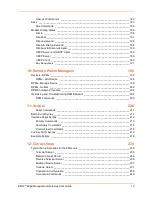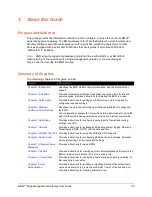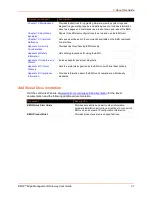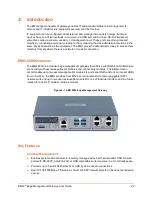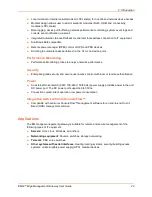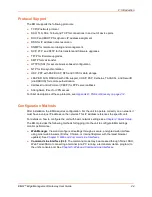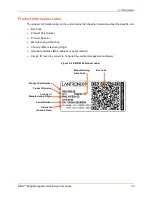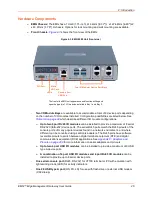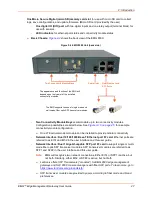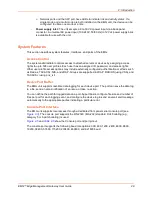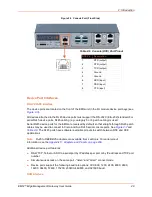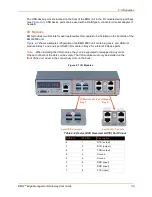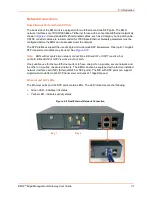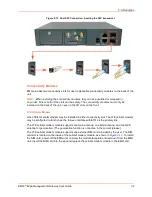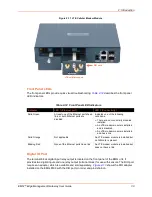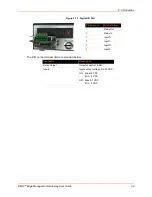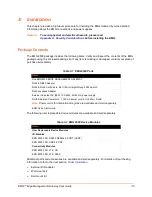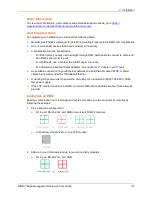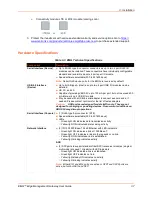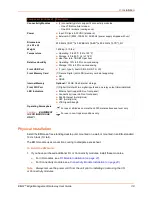
2: Introduction
EMG™ Edge Management Gateway User Guide
24
Protocol Support
The EMG supports the following protocols:
TCP/IP network protocol
SSH, TLS, SSL, Telnet and TCP for connections in and out of device ports
DHCP and BOOTP for dynamic IP address assignment
DNS for IP address name resolution
SNMP for remote monitoring and management
SCP, FTP, and SFTP for file transfers and firmware upgrades
TFTP for firmware upgrades
SMTP for mail transfer
HTTPS (SSL) for secure browser-based configuration
NTP for time synchronization
UDP, PPP with PAP/CHAP, NFS and CIFS for data storage
LDAP/AD, NIS, RADIUS with VSA support, CHAP, PAP, Kerberos, , and SecurID
(via RADIUS) for remote authentication
Callback Control Protocol (CBCP) for PPP server callback
StrongSwan IPsec for VPN access
For brief descriptions of these protocols, see
Appendix D: Protocol Glossary on page 412
Configuration Methods
After installation, the EMG requires configuration. For the unit to operate correctly on a network, it
must have a unique IP address on the network. This IP address references the specific unit.
For details on how to configure the unit with basic network settings, see
.
The EMG provides the following methods for logging into the unit to configure EMG settings
monitor performance:
Web Manager:
View and configure all settings through a secure, encrypted web interface
using most web browsers (Firefox, Chrome, or Internet Explorer with the latest browser
updates). See
Chapter 5: Web and Command Line Interfaces
Command Line Interface (CLI):
The command mode may be accessed through Telnet, SSH,
Web Telnet/SSH or connecting a terminal (or a PC running a terminal emulation program) to
the unit’s console port. See

